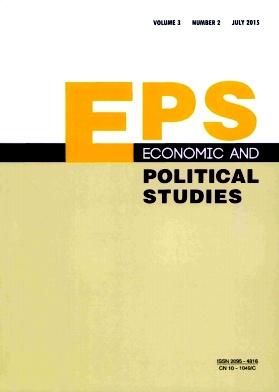Is the Confucian ethic a hindrance to economic development in China?
IF 2
4区 社会学
Q2 SOCIAL SCIENCES, INTERDISCIPLINARY
引用次数: 3
Abstract
Abstract Opinions differ among academics concerning the relationship between the Confucian ethic and China’s economic development. This research reveals that the Confucian ethic originated from the practical demand for guaranteeing the smooth operation of households. Later, it developed into a coordinator between the government and individuals, thus bringing about the institutional compromise between the family system and bureaucracy, which is the foundation of the market system specific to China. In the future, the successful development of a market economy will be largely dependent on whether an institutional equilibrium between the government and market forces can be reached, and this will be strongly related to the Confucian ethic. This paper holds that Confucianism involves inherent conflicts between the macro and the micro level. At the macro level, Confucianism sets very high standards for wealth and morals, but at the micro level it pays little attention to how to create wealth. Accordingly, for the ongoing market reform, it is rational to continue introducing Protestant ethics-oriented Western systems since they are more advantageous in terms of increasing wealth accumulation. However, this process lacks stability and inclusiveness and is thus prone to the separation of wealth from morals. This is exactly where Confucianism should step in. This paper concludes that the long separation of wealth accumulation from the Chinese cultural traditions has become the biggest obstacle to China’s economic growth. In the face of intensified social and economic conflicts, the only appropriate option is to revive tradition and root the reform in China’s own cultural soil.儒家伦理是否阻碍了中国的经济发展?
摘要关于儒家伦理与中国经济发展的关系,学术界众说纷纭。研究表明,儒家伦理的产生源于保障家庭正常运转的现实需求。后来,它发展成为政府和个人之间的协调人,从而带来了家庭制度和官僚制度之间的制度妥协,这是中国特有的市场制度的基础。在未来,市场经济的成功发展将在很大程度上取决于政府和市场力量之间能否达到制度平衡,这将与儒家伦理密切相关。本文认为,儒家思想涉及到宏观与微观的内在冲突。在宏观层面上,儒家对财富和道德设定了很高的标准,但在微观层面上,它很少关注如何创造财富。因此,对于正在进行的市场改革,继续引入以新教伦理为导向的西方制度是合理的,因为它们在增加财富积累方面更有利。然而,这一过程缺乏稳定性和包容性,因此容易出现财富与道德的分离。这正是儒家应该介入的地方。本文认为,财富积累与中国文化传统的长期分离已成为中国经济增长的最大障碍。面对愈演愈烈的社会和经济冲突,唯一合适的选择是复兴传统,将改革植根于中国自己的文化土壤。
本文章由计算机程序翻译,如有差异,请以英文原文为准。
求助全文
约1分钟内获得全文
求助全文
来源期刊

Economic and Political Studies-EPS
SOCIAL SCIENCES, INTERDISCIPLINARY-
CiteScore
5.60
自引率
4.20%
发文量
29
 求助内容:
求助内容: 应助结果提醒方式:
应助结果提醒方式:


